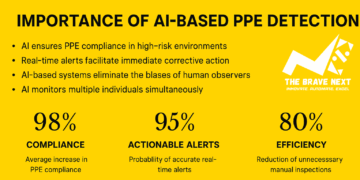In today’s tech-driven world, data science stands at the forefront of innovation, powering everything from social media algorithms to health diagnostics. For aspiring data scientists, the field promises lucrative careers, cutting-edge research, and opportunities to shape the future. But amid this excitement lies a darker, less glamorous side—ethical challenges that are often overlooked in classrooms and bootcamps.
Whether you’re pursuing a university degree or the best data science certification online, understanding the ethical dimensions of your work is no longer optional. It’s essential.
1. Data Privacy: The Thin Line Between Insight and Invasion
One of the most pressing concerns in data science is data privacy. The more data scientists know about individuals, the more accurate their models. But at what cost?
Think about apps that track your location, monitor your sleep, or record your voice. All of this information can be analyzed to predict behavior—but what if it’s used without your consent? Or worse, sold to third parties?
Real-world example: In 2018, Facebook and Cambridge Analytica became the poster child for data misuse. Personal data from millions of users was harvested under the guise of “academic research” and used to influence elections.
This scandal didn’t just tarnish reputations—it exposed how data science, in the wrong hands, can manipulate democratic processes.
2. Algorithmic Bias: When Data Discriminates
Data science is often seen as objective, but algorithms can reflect and reinforce biases already present in data.
Imagine training a facial recognition system mostly on light-skinned faces. The result? The system performs poorly on people of color—leading to real-world discrimination in policing and surveillance.
Hiring algorithms can also be biased. Amazon, for instance, had to scrap an AI recruitment tool after it was discovered to penalize female applicants because historical hiring data favored men.
Students must ask:
- What biases are present in this data?
- Who might be harmed by this model?
- Are certain groups underrepresented?
3. The Problem of Consent: Did Users Really Agree?
A common myth in data collection is that users always consent to share their information. In reality, consent is often buried in lengthy terms and conditions that few read or understand.
Take smart devices like fitness trackers. While users might allow access to their steps or heart rate, they often don’t realize how much of their data is stored, shared, or analyzed in aggregate.
For students, this raises critical ethical questions:
- Is it ethical to use publicly available data without clear consent?
- Should consent be redefined for the age of machine learning?
The answer isn’t always clear-cut—but being aware of the dilemma is the first step toward responsible practice.
4. Data Ownership: Who Really Owns the Information?
If you create a model using customer data, do you own the results? What if the insights are sold to a third party? These are the questions surrounding data ownership, a gray area where legal and ethical lines often blur.
In many companies, employees are not trained to consider where their data comes from or who it affects. For students, this means:
- Understanding the importance of data sourcing
- Giving credit to original data providers
- Respecting user ownership of their digital footprint
As future professionals, students need to advocate for transparency and integrity in data handling.
5. The Rise of Deepfakes and Synthetic Data
Advances in deep learning have given rise to deepfakes—AI-generated audio and video content that mimic real people with alarming accuracy. While these tools can be used for entertainment or education, they’re increasingly used for malicious purposes: spreading misinformation, committing fraud, and violating privacy.
Similarly, synthetic data—artificially generated data that mimics real datasets—is a growing field. While it helps overcome privacy concerns, it can still be manipulated to create false narratives or simulate unethical experiments.
For data science students, the lesson is simple: Just because you can build something doesn’t mean you should.
6. Lack of Accountability: Who’s Responsible When Things Go Wrong?
When an AI model makes a bad prediction—say, denying a loan or misdiagnosing a disease—who is held accountable?
Is it the developer, the data provider, or the company that deployed it?
In many cases, the answer is “no one,” especially when legal frameworks lag behind technology. This lack of accountability creates a moral vacuum where mistakes are brushed aside.
Students should learn to:
- Document their modeling choices
- Consider ethical trade-offs
- Push for human oversight in high-stakes systems
A culture of responsibility must be baked into the data science workflow.
7. Surveillance and Control: The Weaponization of Data
Governments and corporations are increasingly using data science to monitor behavior and control populations. In some countries, facial recognition is used to track protestors. Social credit systems assign scores based on online behavior.
These applications are controversial, yet they showcase the potential for data science to become a tool of oppression rather than empowerment.
As a student, ask yourself:
- Would I be comfortable if this system were used against me?
- Is this technology empowering users or exploiting them?
Understanding the societal consequences of your work is critical to being an ethical practitioner.
How Can Students Prepare?
Ethical training is still missing in many data science programs. Even the best data science certification might not fully prepare students for the real-world dilemmas they’ll face. That’s why you need to go beyond technical skills and actively seek ethical education.
Here are a few steps students can take:
- Take courses in ethics or digital humanities
- Follow industry cases and legal developments
- Participate in open discussions on AI ethics
- Question the impact of every model or data source you use
Final Thoughts: Power With Responsibility
Data science offers immense power—power to discover patterns, optimize systems, and transform lives. But with great power comes great responsibility. The ethical challenges discussed above aren’t just philosophical—they’re real, and they’re already affecting millions of lives.
As a future data scientist, your role isn’t just to build algorithms. It’s to use data responsibly, fairly, and transparently. Make ethics your priority—not an afterthought.
In doing so, you won’t just be good at your job—you will be doing good in the world.


















